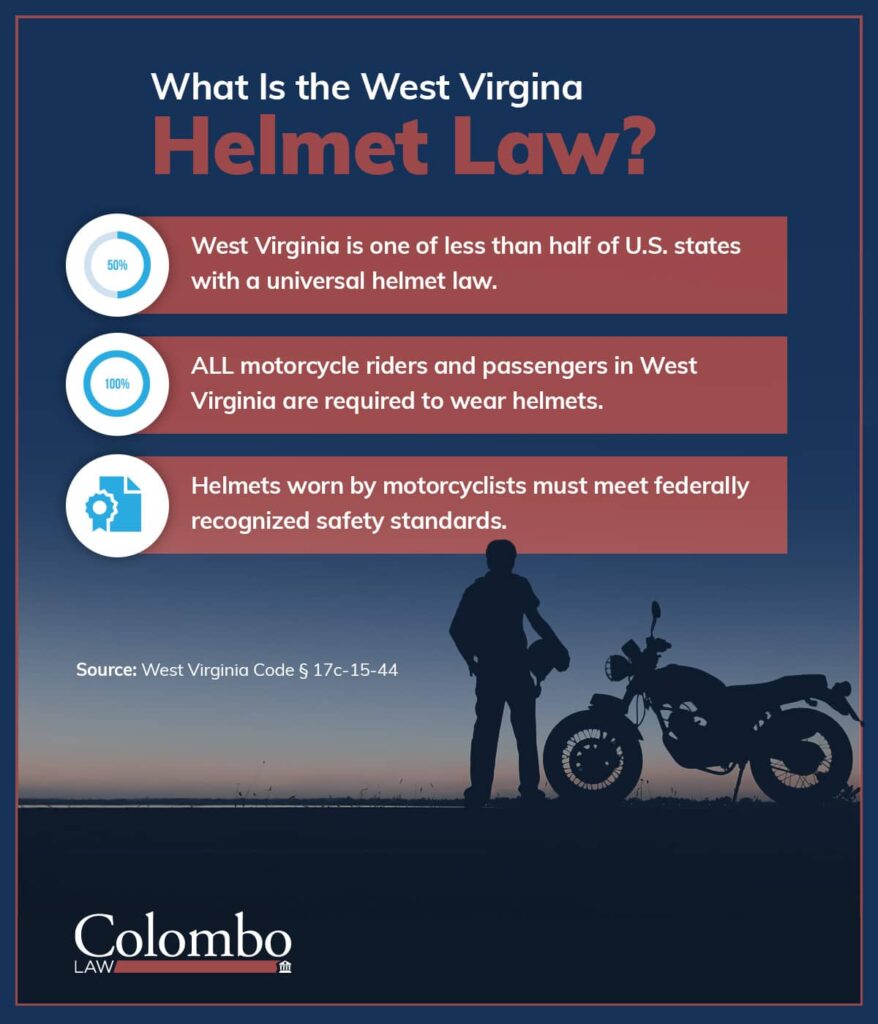
There is no denying that riding a motorcycle can be dangerous. According to the National Highway Traffic Safety Administration (NHTSA), motorcyclists were 29 times more likely to die in an accident than passenger vehicle occupants in 2019.
Unfortunately, some of these fatal accidents occur because of motorcyclists’ mistakes. This includes driving under the influence, which contributed to 42 percent of single-vehicle motorcyclist fatalities in 2019.
Of course, it is impossible to discuss motorcycle safety without discussing the use of helmets. Helmets are extremely effective safety devices that save lives – approximately 1,871 lives in 2017, according to the NHTSA.
That said, helmet laws vary on a state-by-state basis, which has a significant impact on fatality rates. In 2019, in states where helmet laws are not universal – meaning helmets are not always required for motorcycle operators and passengers – 57 percent of motorcyclists killed were not wearing a helmet. On the other hand, in states with universal helmet law, only 9 percent of motorcyclists killed that year on average were not wearing a helmet.
West Virginia has a universal motorcycle helmet law. Although the legal requirement to wear a helmet while riding a motorcycle saves lives, not all motorcyclists survive collisions.
The negligence of other motorists is a common factor in motorcycle accidents. If you were injured or lost a loved one because of another driver’s carelessness, it is important to contact a West Virginia motorcycle accident attorney as soon as possible. The team at Colombo Law will review your case for free and advise you of your legal options for pursuing compensation.
Are Motorcyclists Required to Wear a Helmet in West Virginia?
West Virginia is one of less than half of U.S. states with a universal helmet law. This means that motorcycle riders and their passengers are required to wear helmets. Failing to do so can result in a traffic citation, fines, and even a suspended license.
While safety organizations consider universal helmet laws a victory, there are some who wish to change the requirements. Just this year, Senate Bill 77 was introduced to allow adults 21 years and older and with two years of motorcycle experience to have the option not to wear a helmet. At present, though, the bill has been adjourned indefinitely.
What Are the Legal Requirements for Motorcycle Helmets?
There are also rules in place for what kind of helmet motorcyclists and passengers must wear. According to the West Virginia DMV, you must use a Department of Transportation (DOT)-certified helmet. These helmets come with a sticker that shows they meet the Federal Motor Vehicle Safety Standard 218 (FMVSS 218).
The helmet you select should also have a label indicating compliance with the standards set forth by independent organizations like the American National Standards Institute (ANSI) or Snell. These groups assess motorcycle helmets for their safety according to criteria similar to the federal standards.
Finally, it is important to make sure that a motorcycle properly and comfortably fits your head before riding. You should also check to make sure no part of the helmet is damaged or defective.

Why You Should Wear a Motorcycle Helmet
The first reason helmets are important is because they are so effective at saving lives. However, this is not the only reason it is so crucial to wear a helmet in West Virginia. In some cases, failing to wear a helmet could have legal implications beyond citations.
Wearing a helmet is the law. Hence, if you are involved in an accident, the subsequent damages (including your medical bills, lost wages, and more) could be blamed in part on your not wearing a helmet – even if the accident itself was caused by the negligence of the other driver – under West Virginia’s comparative negligence laws.
For example, consider a situation where a driver rear-ends you at a stoplight, causing you to be ejected from your motorcycle and resulting in serious injuries. If you were not wearing a helmet and it is determined that this contributed to the severity of your injuries, the amount of compensation you are able to recover could be reduced by the percentage you are deemed at fault.
If, for example, your damages added up to $100,000 but a jury decides you were 20 percent at fault because you were not wearing a helmet, you would only be able to recover $80,000 in damages.
Contact a West Virginia Motorcycle Accident Attorney If You Were in a Wreck
Losing compensation for not wearing a helmet might seem unfair. However, the truth of the matter is that insurance companies will use whatever technicalities they can to pay you as little compensation as possible. At Colombo Law, we are here to help even the playing field
Our attorneys provide the aggressive legal representation you need to stand up for your rights and pursue the maximum compensation you deserve. For more than 20 years, Colombo Law has been helping motorcycle accident victims and their families achieve justice.
Please call Colombo Law today at (304) 599-4229 for a FREE case review. Our motorcycle accident attorneys serve clients in Morgantown and throughout West Virginia.










